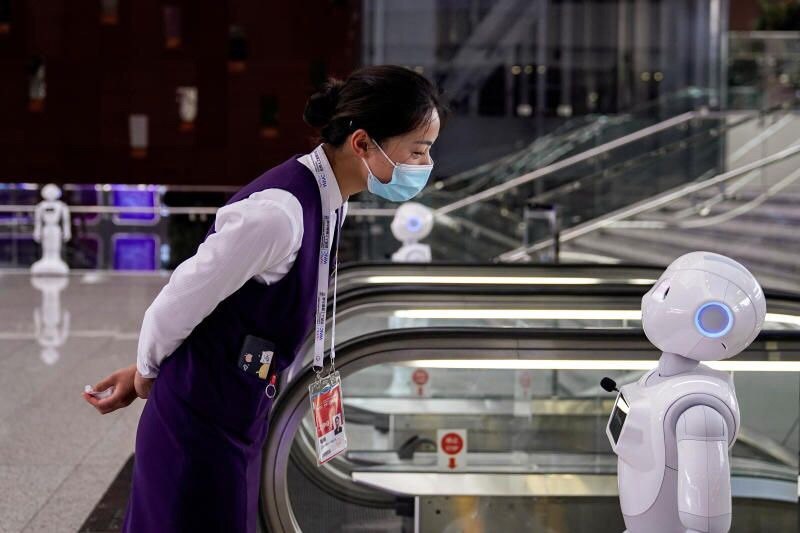Whatever the topic discussed at the World Conference on Artificial Intelligence (WAIC) that finished yesterday in Shanghai, the dialogue eventually came up with COVID-19. Top AI experts are now busy finding technological solutions to combat the pandemic.
Thus, Chinese tech giants Baidu, Alibaba, Tencent, SenseTime and iFlytek described how exactly their innovative developments help the local healthcare system. The first projects were epidemic data modeling, screening people on the streets, and contact tracing of confirmed COVID-19 cases. All of these helped health care providers to control the situation with the spread of the coronavirus.
SenseTime, a Shanghai-based company specializing in deep machine learning, worked with many hospitals and medical facilities across China during the COVID-19 outbreak to help diagnose the infection. In no time at all, the developers upgraded their diagnostic application, which significantly improved the efficiency, accuracy, and speed of CT analysis using AI algorithms.
AI firm Megvii, another WAIC exhibitor, has launched a remote temperature measurement system in subway stations in Beijing to help track passengers with high temperatures. The technology can survey up to 300 people in one minute without interfering with passenger flow.
Alibaba Group revealed that its artificial intelligence systems have been used to fight a new coronavirus infection in more than 620 medical centres around the world. This includes big data analysis, specialized applications, and systems to improve the efficiency of operations.
Professors from China's leading medical universities urged the authorities to accelerate the implementation of big data analytics in healthcare. This would create an early warning system for epidemics, because if AI had been able to identify the characteristic signs of the virus as early as December 2019, the medical community could have sounded the alarm earlier. In addition, AI technology could play a key role in remote diagnosis, vaccine development, and global coordination in the fight against pandemics.
In this regard, Anglo-Swedish pharmaceutical company AstraZeneca noted that AI is changing the path of scientific research and pharmaceutical production. Artificial intelligence is beginning to be used in the development of drugs against COVID-19 and chronic diseases. It is also a potentially powerful tool for creating anti-aging drugs.
At the same time, AI, according to the international business community, is becoming the new engine of the economy, because it is in the era of the pandemic that the need for smart online services and applications for companies has increased dramatically. Remote work, online entertainment and shopping have become part of our daily lives. This provides great development of AI in the future.
It is not a coincidence that the AI, 5G and Internet of things ecosystem in China is developing extremely fast. Many Chinese cities have stepped up efforts to create entire artificial intelligence clusters. Shanghai has built an "Island of Science" in Zhangjiang for major AI players and startups. Some 90 companies have already come here, including Huawei, Alibaba, Microsoft and IBM.
Local experts believe that continued efforts to promote the artificial intelligence industry and create new types of infrastructure will stimulate economic activity after the pandemic.


